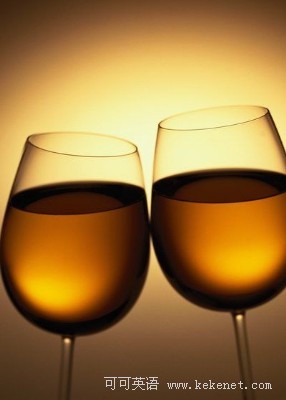
To get at the real reason for the clink of glass on glass, we have to first look at why and how we toast, and where the practice originated.
那么要找到喝酒碰杯的真正原因,我们首先应该了解的是我们为什么喝酒?怎么喝酒?并会在什么样的情况下碰杯?
The custom of sealing with booze expressions of good wishes for the health of others dates back so far that its origins are now lost to us, yet in numerous cultures such acts of camaraderie often involved shared drinking vessels. The clinking of individual cups or glasses as a proof of trust wouldn't have meant much when everyone drank from the same bowl. Indeed, in those cultures where shared drinking containers was the norm, to produce one's own vessel in such company was to communicate an unmistakable message of hostility and distrust; it would have been regarded as akin to bringing along a food taster to sample the repast.
我们很难找到喝酒狂欢表达良好祝愿如身体健康等的起源。然而在众多中,朋友之间的行为会经常涉及到祝酒,每个人从同一个碗里喝酒,那么碰杯就不再是信任彼此的证明。实际上,在这样一种文化里,公用同一个酒器成为一种规则,单独用你自己的酒杯会带来敌对和不信任的误解信息,这将被认为同做餐后的食物品尝家的品尝行为来防毒相类似。
Etiquette mavens say one need not clink glasses with everyone present when participating in toasts among large assemblies. Rather than reach across vast expanses of wide tables (thereby risking losing your balance and ending up in the guacamole), simply raise your glass and make eye contact with the group.
礼节上在现在当一个人参加一个大聚会时不需要和每个人碰杯。相比较隔个大桌子(而冒着失去平衡的危险)碰杯而言,还不如举起酒杯眼神交流感情来得真切。



















